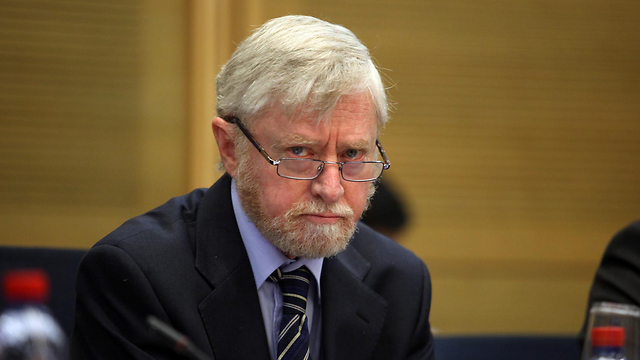Yosef Shapira releases report on defense budget, finding weak supervision and control by senior staff over streamlining process.
State Comptroller Yosef Shapira on Wednesday released a special report on the defense budget, in which he criticized unsatisfactory attempts to apply efficiency measures and streamline the defense establishment.
The comptroller found a lack of satisfactory streamlining in the defense sector, mainly in relation to human resources; weakening of control and supervision by senior defense staff over the efficiency process; an absence of supervision and control by the political echelon and the Finance Ministry over the streamlining process. The comptroller also found that the IDF did not consider the possibility of substantial organizational changes in a changing geopolitical landscape.

The section dealing with career soldiers in the IDF noted that expenditure on these soldier’s salaries equals about 18 percent of all defense establishment expenses. It added that the Brodet Commission recommended in 2007 that manpower costs in the career army be reduced, but between January 2008 and January 2013 this not only failed to occur, but that this manpower grew by around nine percent at its peak.
The comptroller also found that for three years starting in October 2011, other than one meeting, the Defense Ministry director and the deputy chief of staff did not convene the steering committee they headed, which should have tracked the efficiency process and dealt with targets not being met.
The comptroller wrote that many failures were found in oversight of efficiency measures, and that the defense establishment did not examine the possibility of fundamental changes to its structure in light of a changing reality.
The report also found fault with the IDF’s shift towards bases in the Negev, pointing out that although a decade has passed since the government made its decision on this, essential aspects of this plan have not been finalized.
The comptroller remarked that the defense establishment had been ordered to save NIS 10 billion in 2008-2012, but failed – with a lag of about NIS 6.2 billion, a major defect that magnifies uncertainty regarding the timing of the move, or even whether it is feasible at all.
The IDF and Defense Ministry reacted to the report by noting that it discussed the years 2008-2012 and thus did not reflect the situation today. “It should be noted that the IDF has been working without a multi-year plan starting in 2012, in contrast to the norm in most organizations as large as the IDF and the defense establishment,” read a statement. “The manpower increase in question during the years discussed in the report took place in accordance with operational needs stemming from a changing reality and following the development of new and important capabilities.”
As reported by Ynetnews
